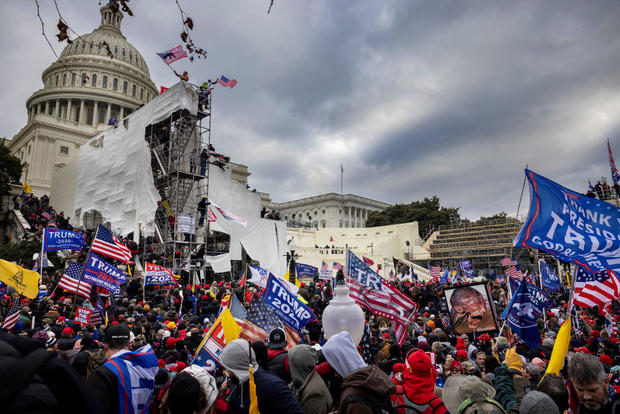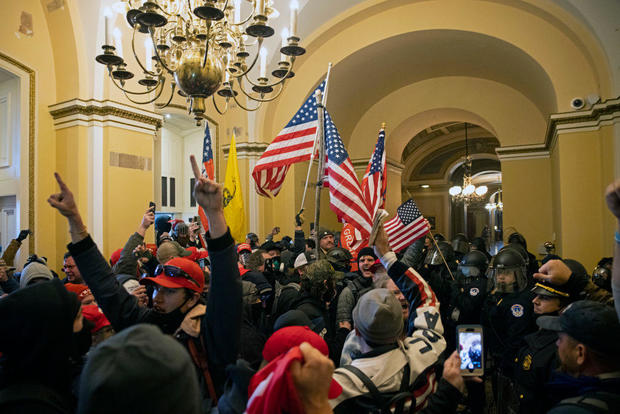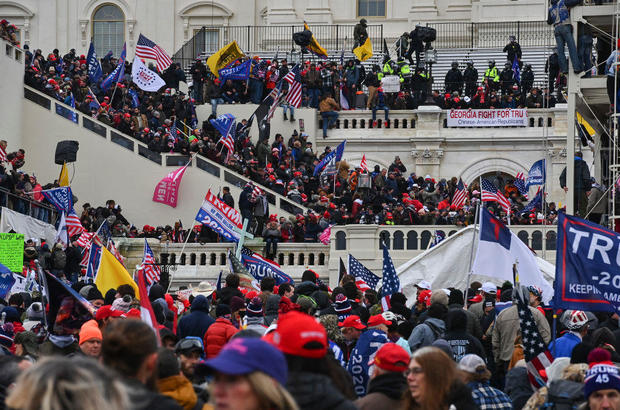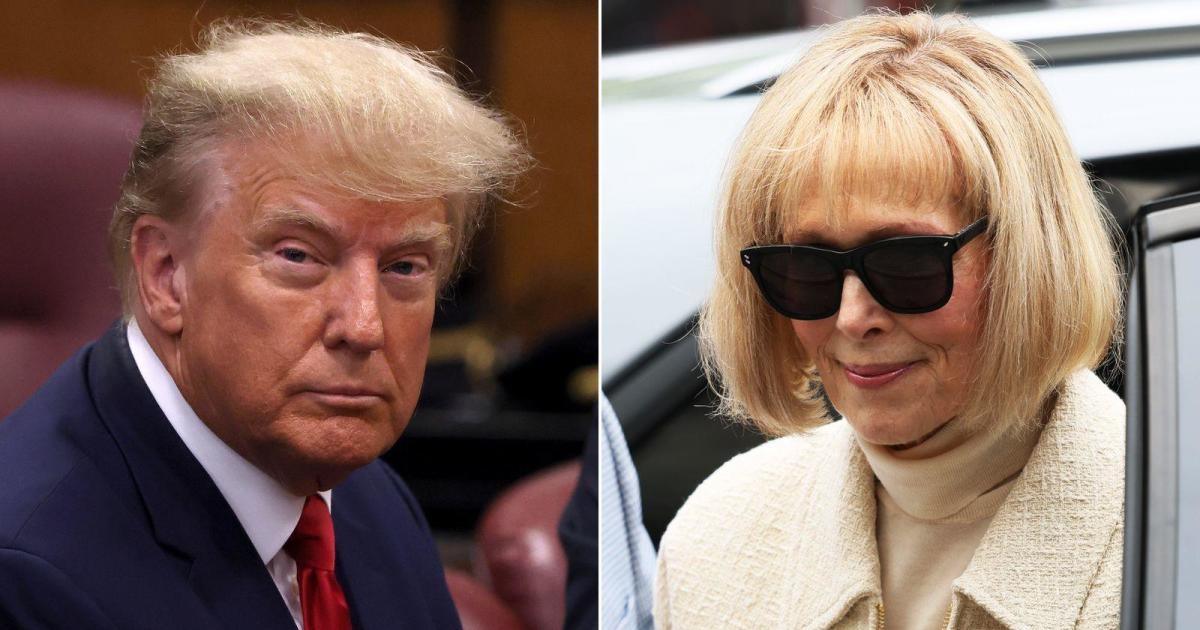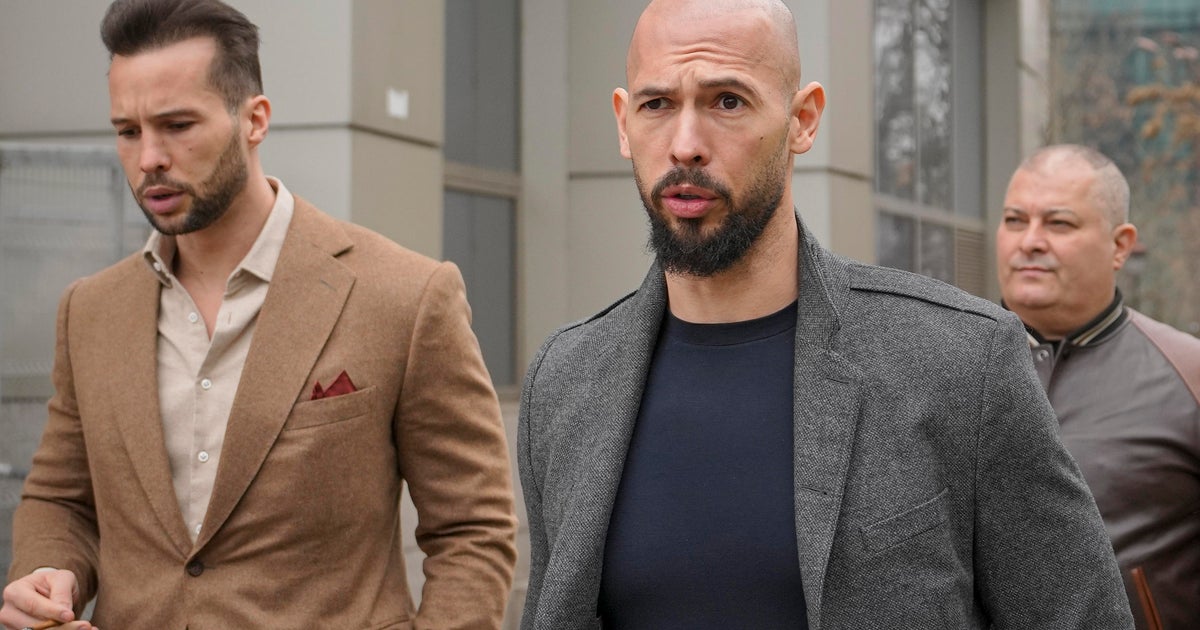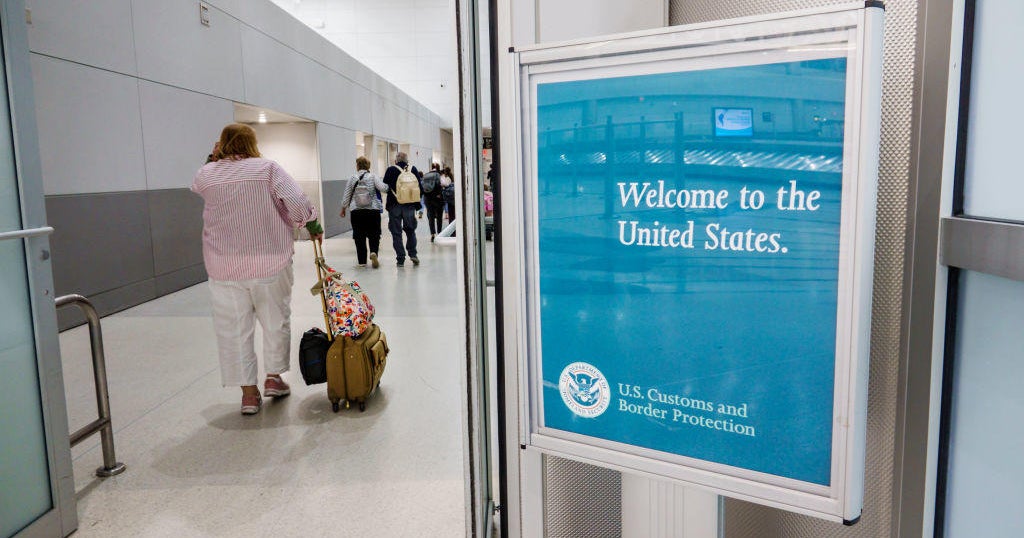Judge who delivered first acquittals in the Jan. 6 prosecutions is set to oversee another trial
Washington – The Delaware man accused of parading a Confederate flag throughout the U.S. Capitol building during the Jan. 6 attack is set to stand trial next month with his son. They will be tried not before a jury of 12 of their peers, but before a judge who will be the sole arbiter of their fate, court records indicate.
Kevin Seefried and his son, Hunter – who pleaded not guilty to multiple counts, including obstruction of an official proceeding and disorderly conduct – will appear before Judge Trevor McFadden on June 13, 2022, in a bench trial. McFadden is expected to hear evidence and testimony from both sides, ask questions of any witnesses called and deliver a final verdict on each count.
Of the six Jan. 6 cases to be tried and completed so far, only two were bench trials. McFadden was the judge randomly assigned to both of those cases and unlike the juries in the remaining four, the judge acquitted one defendant on all counts and another defendant on one of the two counts against him.
Juries have convicted all four defendants who faced jury trials, on all counts, each in a matter of hours.
"The extraordinary circumstance of so many criminal defendants in cases related by the same background facts and largely the same legal arguments before a single judge gives these defendants a huge advantage," George Washington University law professor Catherine Ross said, adding that these defendants likely already know and take into account how a judge has previously ruled in relatively similar cases.
Defendants cannot select the judges that preside over their cases in any situation. Judges are randomly assigned, but with more than 800 Jan. 6 cases so far charged in the D.C. federal courthouse, such overlap is unavoidable.
Defendant Couy Griffin – a New Mexico county commissioner who was acquitted in March on one of two charges by Judge McFadden – called the ruling a "partial victory" while speaking with supporters in the courtroom shortly after the verdict.
McFadden ruled from the bench that Griffin was guilty of the charge that amounted to knowingly and illegally entering Capitol grounds in the vicinity of then-Vice President Mike Pence, who was in the Capitol building to certify the counting of the Electoral College votes and remained in the Capitol complex during the riot. But McFadden found Griffin not guilty on the second charge of disorderly conduct, saying Griffin's attempt to get the crowd to pray with him "arguably" was not disorderly, but an attempt to calm the crowd down.
When asked by CBS News if he'd recommend others seek a "bench trial," rather than a jury trial, Griffin said, "If I was anywhere besides Washington, D.C., I'd say go with the jury trial. You can't get a fair jury trial in Washington, D.C., if you're someone like me. I'm a strong conservative."
But Griffin said there is risk when a defendant puts his or her fate in the hands of a single judge as opposed to a jury that must unanimously find an individual guilty in order to convict. "You're putting all of your eggs in one basket, he said. With a jury trial, you have twelve baskets. Each (defendant) is going to have to pray through it and make that decision."
Griffin is scheduled for sentencing on June 17 for the single misdemeanor trespassing charge for which he was convicted by McFadden. His lawyer did not respond to CBS News' request for comment.
Over a dozen defendants have argued the Jan. 6 jury pool won't give them a fair trial and asked that their cases be moved out of D.C. Judges so far have rejected those claims and in four separate cases, the judges have successfully empaneled juries from Washington, D.C.
McFadden acquitted defendant Matthew Martin, a contractor from New Mexico, of all four misdemeanor charges the Justice Department filed against him. After the ruling, Martin told CBS News, "I am very happy for the judge's verdict. And I'm eager to get my life back together."
In his ruling, McFadden cited Martin's demeanor while inside the Capitol, noting that he did not appear to be screaming or crowding anybody. McFadden also referenced video evidence indicating police didn't physically block Martin as he entered the building, and one even appeared to possibly be waving him inside. McFadden said it was a "close call" on the charge of entering a restricted building. McFadden agreed that Martin had entered the Capitol, but said in his ruling that intent was key.
After the verdict, his defense attorney, Dan Cron, said the decision to seek a bench trial before McFadden "could have cut both ways," adding, "If it's a jury trial, then all 12 have to convict somebody. In a bench trial, you just have one person."
Don Lewis, a New York-based attorney, agrees. "The defense has only one shot with a judge," he explained. Despite that risk, Lewis said, some defendants may choose a bench trial in particularly high-profile cases like Jan. 6 prosecutions when the public opinion may be already formed.
"The judge handling the case is obviously a critical factor," Lewis said.
Other Jan. 6 defendants have also asked judges for bench trials later this year, like Kyle Fitzsimmons, accused of multiple violent crimes against law enforcement. Fitzsimmons has pleaded not guilty and waived his right to a jury trial, instead asking Judge Rudolph Contreras, an Obama appointee, to rule on his guilt. The judge has yet to grant his request.
McFadden has handled other high-profile Jan. 6 cases, too. In September 2021, he ordered the pretrial detention of restaurant owner Pauline Bauer, where she remains while she awaits her trial. Bauer, who is from Pennsylvania, faces lower-level charges, but has disrupted court proceedings with outbursts, used language consistent with "sovereign citizens" who consider themselves outside the purview of the federal government, and previously violated her release conditions. She has frequently interrupted McFadden during court hearings, as she represents herself in the case.
In the Capitol breach case of Jenny Cudd, McFadden gained attention when he approved Cudd's request to travel from her home in Midland, Texas, to hold a weekend retreat for her employees in Mexico's Riviera Maya, despite pretrial release restrictions on her travel. Cudd was charged with two misdemeanors. McFadden's order said Cudd had no criminal history and that he was given no evidence that Cudd was a flight risk or a danger to others. The order gained notoriety because it was issued in February 2021, less than a month after the Capitol attack. Cudd complied with the court's order and ultimately pleaded guilty to one count of illegal entry. McFadden sentenced her to two months probation and imposed a $5,000 fine.
He also denied separate attempts by both Kevin and Hunter Seefried to dismiss some of the charges against them, paving the way for the upcoming trial.
McFadden was appointed to the U.S. District Court for the District of Columbia by President Donald Trump in 2017. The Senate confirmed him by a vote of 84-10 on October 30, 2017.
McFadden's official questionnaire submitted to the Senate Judiciary Committee said he had "volunteered as a vetter for President Trump's transition team" both before and after Election Day in November (2016)." In his written responses to questions from the committee, McFadden described his role with the Trump transition team: "I reviewed public-source information regarding potential political appointees to the Executive Branch for evidence that may disqualify them or reflect poorly on the President should they be appointed to office."
According to his court-published biography, prior to his 2017 appointment as a judge on the federal bench, McFadden clerked for the 8th Circuit Court of Appeals and worked as an attorney in private practice and for the Justice Department, most recently as deputy assistant attorney general and acting principal deputy assistant attorney general of the department's Criminal Division.
